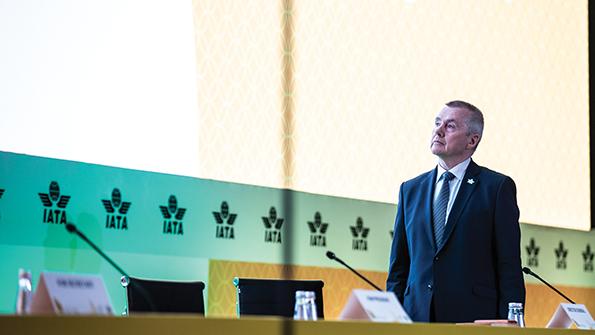
IATA director general Willie Walsh opens the 2024 IATA AGM.
Credit: IATA/Natalia Mroz
If consensus is difficult to achieve on an organization’s key policies, it can help to tweak the messaging. That appears to have happened in the 12 months between the 79th IATA AGM in Istanbul in June 2023 and the 80th AGM in Dubai this year. On the most important issue—sustainability—the key...
The World’s Airlines Push Back On Some Government Environmental Moves is part of our Air Transport World subscription.
Subscribe now to read this content, plus receive full coverage of what's next in air transport from the experts trusted by the global air transport community. Every article focuses on what airline management professionals need to run their airline, including crucial analysis and insights in financing, airframes and engines, environmental and regulatory pressures and much more.
Already a subscriber to ATW or an AWIN customer? Log in with your existing email and password.
